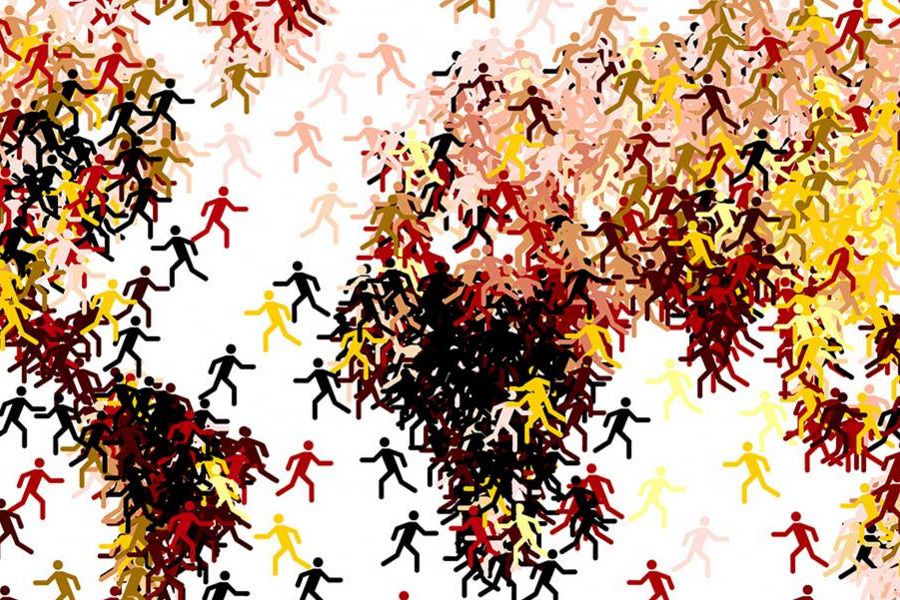
Admission Notice for the Academic Year 2025–2026 The unified call for applications for admission to the Master’s Programme for the A.Y. 2025/2026 has been published. Link to the Call:https://www.uniroma1.it/sites/default/files/field_file_allegati/bandounico_master_25-26.pdf The application deadline is 31 January 2026. |
| INFORMATION ON SCHOLARSHIPS AND ADMISSION PROCEDURES FOR INTERNATIONAL STUDENTS AVAILABLE HERE: https://www.uniroma1.it/en/admissions2023 |
The Master’s Blog Thanks to the collaboration between the Master in Migration and Development and Large Movements, the Master’s Blog is now active. Within the Blog, you can find short introductory videos about the programme at the following link: |
Book: “Strumenti – The Perspective of Young Scholars from the Master in Migration and Economic Development, Sapienza University of Rome” For more information: https://www.nuovacultura.it/prodotto/strumenti/ |
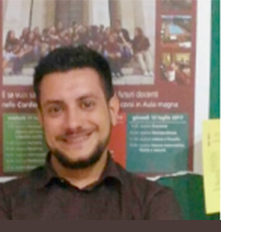 | Alberto Di Maio, Master’s Student A.Y. 2016–2017 “Human beings have always migrated. This course reminded us of the naturalness of that process and how to make it a positive experience for everyone — both migrants and non-migrants.” |
 | Martina Daniele, Master’s Student A.Y. 2018–2019 “To truly understand migration, it is essential to acknowledge its complexity. The Master’s multidisciplinary approach provides a holistic framework and pushes the mind to consider the multiple dimensions that define migration, placing the human being — and their need to move — at the centre of reflection.” |
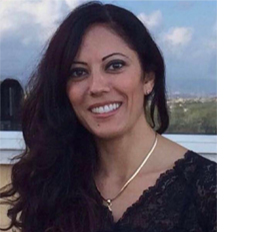 | Fadia Aljamal, Master’s Student A.Y. 2019–2020 “In our current historical context, there are powerful motivations behind an individual’s desire to move from one place to another. This programme deepens the understanding of migration as a socio-economic phenomenon influenced by both internal and external factors — among the most relevant being the global labour market dynamics.” |
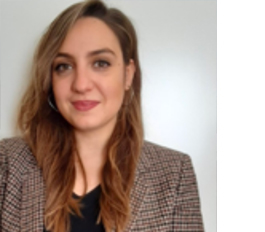 | Marina De Stradis, Master’s Student A.Y. 2020–2021 “Migration phenomena are ancient and complex: they move histories, cultures and societies. Understanding and addressing these issues require cross-cutting skills and professionalism. The Master in Migration and Development equips participants with essential analytical and operational tools, in constant dialogue with key contemporary topics such as global citizenship and sustainable development.” |
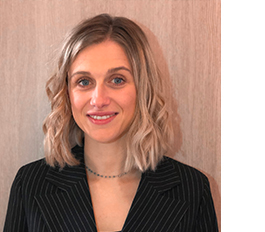 | Carlotta Vicario, Master’s Student A.Y. 2020–2021 “Thanks to the knowledge and skills acquired during the Master, I decided to embark on a Ph.D. path. My research project on migration chains and climate change received positive evaluation from the committee, opening a new chapter in my academic journey.” |
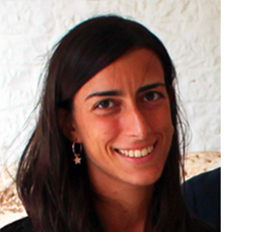 | Clara Punzi, Master’s Student A.Y. 2021–2022 “The main focus of the Master is the study of migration as a cross-sectoral phenomenon characterised by multiple, interconnected variables. Gaining the ability to identify and reposition migration within its natural dimension is crucial for making decisions that can guide global populations toward a healthy and sustainable future for all.” |
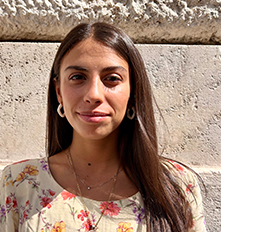 | Alessia Passaro, Master’s Student A.Y. 2022–2023 “The Master offers an outstanding experience, enabling collaboration with sector experts and participation in cutting-edge research. Through this training, I had the opportunity to complete an internship focused on food security in the Middle East and North Africa region. The programme’s relevance lies in its ability to prepare students for real and complex global challenges, inspiring action toward a more sustainable future.” |
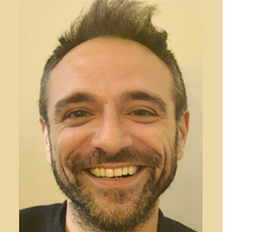 | Pier Francesco Fermani, Master’s Student A.Y. 2022–2023 “Attending the Master provides an opportunity to explore the complex topic of migration in depth, thanks to the expertise of the teaching staff. The acquired knowledge opens diverse professional opportunities. Personally, it provided me with the necessary know-how to access the Ph.D. in Economics and Development within the Department of Social and Economic Sciences.” |
 | Viktor Donald Ruben Seibert, Master’s Student A.Y. 2023–2024 The Master in Migration and Development helped me connect research with real-world impact. I really appreciated the variety of lecturers, each bringing a different perspective, many with hands-on experience from the field. It gave me the tools to understand migration as a complex and deeply human phenomenon, and inspired me to develop a practical, solution-oriented project in the field of migration (Sportellino, an AI chatbot that helps migrants in Italy with bureaucratic questions). |
DESCRIPTION
The Master in Migration and Development is a 1st-Level University Master’s Programme organised by the Department of Social and Economic Sciences (DiSSE) at Sapienza University of Rome.
The Director of the Master’s Programme is Professor Letteria G. Fassari, Associate Professor of Sociology of Cultural Processes and Cultures for Sustainability, Department of Social and Economic Sciences (DiSSE).
OBJECTIVES AND PROFESSIONAL PROFILES
The Master aims to train professionals capable of responding innovatively to the needs of various labour-market sectors that require or benefit from specific expertise related to migration and the interconnected themes of sustainable development.
The programme is designed for individuals seeking to build professional competence both in the field of inclusion and human-rights protection for migrants, and as experts in the design and implementation of economic and social policies within public and private organisations at national and international levels.
The professional profiles targeted by the Master include positions and responsibilities in the economic-financial, legal, and international-relations fields including development cooperation, geopolitics, policy design, and project analysis.
Examples of relevant professional paths include:
- senior-level roles in the fields of human and social development cooperation,
- positions in NGOs and third-sector organisations (national and international),
- educational and social-cooperation institutions,
- cultural, economic, legal, and health organisations, with both managerial and advisory responsibilities.
ADDED VALUE
The added value of this Master lies in its global vision of migration phenomena, going beyond linguistic and cultural mediation to include the human, social, and economic dimensions of development in both origin and destination countries.
This approach ensures the direct involvement of professors and experts in anthropology, law, economics, geopolitics, political science, health sciences, and sociology — disciplines that together provide a theoretical and practical framework for understanding, managing, and governing migration flows in the perspective of human and sustainable development.
Since the Academic Year 2022–2023, alongside the standard track, an international track has been introduced, entirely taught in English and specifically designed to meet the needs of international students wishing to refine their academic tools and technical skills to face the global challenges of migration and development
PARTNERSHIPS
The Master benefits from strategic partnerships established by Sapienza University with international organisations (UNHCR, IOM, and the UN Rome-Based Agencies), Ministries (notably the Ministry of Foreign Affairs and International Cooperation, and the Ministry of the Interior – Department for Civil Liberties), think tanks, research centres, NGOs, and civil-society organisations (CSOs).
These collaborations strengthen the curriculum and ensure that students gain a comprehensive understanding of the topics addressed — enriched by direct field testimonies and experiences.
Lectures and meetings with professionals and experts from the sector are a distinctive feature of the programme, which uniquely combines theoretical knowledge with practical foundations.
Through engagement with professors, researchers, practitioners, and specialists from partner institutions, students receive a well-rounded education on migration issues, enhancing both their theoretical and operational skills.
TEACHING STAFF
The Academic Board of the Master in Migration and Development consists of a multidisciplinary group of Sapienza professors with expertise in Anthropology, Law, Epidemiology, Economics, Geopolitics, Medicine, Political Science, Sociology, Statistics, and International Relations.
The Board is periodically complemented by external experts and professionals with extensive experience in the fields covered by the Master.
TEACHING
The total teaching commitment amounts to 1,500 hours of study, equivalent to 60 ECTS credits (CFU), distributed as follows:
- 315 hours of lectures (divided into five comprehensive modules)
- 75 hours of seminars and case-study activities
- 660 hours of individual study
- 375 hours dedicated to project work (including the internship)
- 75 hours for the preparation of the final Master’s thesis
MODULES
The teaching activities are organised into five modules, common to both the regular and international tracks, and cover the core topics of the Master’s Programme.
Below are the detailed contents of each module.
1. Statistical-Demographic- Economic Module
(valid for both the Regular and International Tracks)
Coordinator: Prof. Pierluigi Montalbano
Contents:
- International labour mobility: economic effects on origin and destination countries
- Migration, demography and development
- Statistical sources and methodologies for data collection and processing
- Italian migrations in the Mediterranean context, past and present, and the role of institutions
- The impact of immigration on public finance
- Remittances: development potential, transfer costs and financial inclusion
2.1 Socio-Political Module
(valid for the regular track)
Coordinator: Professor Alessia Giorgia Salvatrice Melcangi
Contents:
- Geopolitical aspects of migration
- History and theory of social and political thought on migration
- Socio-demographic analysis of migratory movements
- Psycho-social aspects of migration phenomena
- Security and migration in destination countries: illicit trafficking and crime
- Theory and analysis of international migration policies and practices
2.2 Geopolitical Module
(valid for the international track)
Coordinator: Professor Alessia Giorgia Salvatrice Melcangi
Contents:
- Geopolitics, security and sustainability of the international system
- Migration trends in the Mediterranean: routes and illegal trafficking
- Geopolitical and security trends in the wider Mediterranean region
- Immigration, identity and minorities
- Post-conflict and emergency management
- Sociology of migration
- Critical sociology of race and ethnicity
Specific topics:
- Global competition in the Horn of Africa: geopolitical interests and economic rivalries
- Energy and politics: the geo-energetic dispute in the Eastern Mediterranean
- Development and security challenges in the Sahel region
3.1 Health Module
(valid for the regular track)
Coordinator: Prof.ssa Rossella Carnevali
Contents:
- Health profiles and dynamics among migrant populations
- Participatory construction of health policies and empowerment processes for migrants
- Global health governance
- Fundamentals of medical anthropology
- Field interventions for the protection of the most vulnerable migrants
- The role of the third sector in promoting migrants’ health
- Health issues affecting migrant women
- Health protection policies for migrants
- Inequalities in health and healthcare among migrant populations
3.2 Food and Nutrition Security Module
(valid for the international track)
Coordinator: Prof. Pierluigi Montalbano
Contents:
- Food and nutritional security (concepts of Zero Hunger – SDG 2, measurement issues, and policy implications)
- The state of food and nutritional security worldwide
- Resilience and adaptation of food systems to multiple stress factors (including climate change)
- The concept of socio-economic vulnerability in a risky environment: conceptual and measurement issues
- Adaptation and resilience: conceptual and methodological considerations
- Implications for labour mobility, displacement, rural–urban linkages, and local and international migration flows
4. Legal Module
(valid for both the regular and international track)
Coordinator: Professor Mario Carta
Contents:
- Citizenship and multiple citizenships in European and international law
- Constitutional aspects of citizenship regulations
- EU policy on immigration and asylum within the Area of Freedom, Security and Justice
- Case law of the Court of Justice of the European Union on immigration and asylum
- International, European, and national protection of asylum seekers and refugees
- Access of foreign citizens to the National Health Service
- Migrants’ rights and sea rescue operations
- Law, immigration and European citizenship (in collaboration with the Jean Monnet Sapienza Module)
5. Professionalizing and EU Project Design Module
(valid for both the regular and international track)
Coordinator: Prof.ssa Alessandra Morelli
Contents:
- Understanding the link between migration, development and international cooperation
- Experiences and practices of International Organisations: meetings with UN agencies and multilateral bodies to explore policies, programmes and tools (e.g., UNHCR, FAO, IFAD, World Bank, EUAA)
- Focus on cooperation projects and EU funding mechanisms related to migration
- Approaches and interventions of NGOs and Civil Society Organisations
- Presentations by organisations engaged in the protection of migrants’ and refugees’ rights (e.g., Arci, A Buon Diritto, Focsiv, Intersos, ActionAid)
- Sharing of field experiences and best practices in advocacy and direct assistance
- Local experiences and good practices: stories and case studies from Italian contexts (e.g., Il Fiore nel Deserto, Civico Zero)
- Analysis of local dynamics and socio-occupational integration of migrants (e.g., Labour Corridors)
- Management of migration flows and analysis of European migration policies: insights into border management and EU asylum policies (e.g., Frontex, National Commission for the Right of Asylum, Ministry of the Interior)
- Design and management of EU funds for migration and development: tools for EU project planning and financial management (e.g., Elements of Europroject Design, EU Migration Funds)
Modules that are valid for both the regular and international tracks are entirely taught in English.
REGISTRATION PROCEDURES
Candidates interested in applying must submit their application for admission according to the procedures indicated in the Unified Call for Master’s Programmes at Sapienza University, available at:
https://www.uniroma1.it/it/pagina/master
The call is generally open until December of each year.
After the closing date, the Master’s academic staff will begin the selection and admission process, which concludes with the publication of the list of admitted candidates on the Sapienza web page dedicated to the Master.
In addition to the evaluation of academic qualifications, applicants must also take part in an admission interview(motivational interview).
The International Track is taught entirely in English, and no Italian language certification is required for international students.
During the motivational interview, the selection committee reserves the right to assess the candidate’s level of English proficiency for the international track.
CALENDAR
The classroom phase takes place from March to July, while the internship period usually runs from September to November.
The Master follows a “weekend format”, with classes held on Friday afternoons and Saturday mornings.
The final thesis (Master’s dissertation) must be submitted by January of the following year.
The final examination is scheduled by March of the year following enrolment.
MASTER'S THESIS
Instructions for the drafting of the thesis
Instructions for the final exam for students
Useful information for the Final Examination
FEES
The total tuition fee for the Master’s Programme is €3,000, payable in two instalments.
Admitted candidates must pay the enrolment fee according to the procedures indicated in the official Sapienza call; failure to do so will result in exclusion from the programme.
Only after the first instalment has been successfully processed will the admitted candidate be considered officially enrolled in the Master’s Programme.
SCHOLARSHIPS
Scholarships are available for meritorious students, covering the Department’s share of the tuition fee (70% of the total amount). The remaining portion, corresponding to the university administrative fee, remains payable by the student.
Allocation Criteria:
- One scholarship is awarded for every 10 paying students.
- Scholarships are granted based on academic merit and proficiency in managing Google Workspace tools (Drive, Classroom,Meet, Gmail, Forms, and Sheets).
- Recipients will be selected to provide technical and organisational support as classroom tutors during the course.
Attendance Requirement:
To maintain eligibility for the scholarship, in-person participation is mandatory, even though the programme allows for remote attendance options.
ACADEMIC BOARD
The Academic and Scientific Committee of the Master in Migration and Development consists of a multidisciplinary group of professors from Sapienza University of Rome, with expertise in Anthropology, Law, Epidemiology, Economics, Geopolitics, Medicine, Political Science, Sociology, Statistics, and International Relations.
The Board is further enriched by external experts and professionals with extensive experience in the various fields of study covered by the programme.
Members of the Academic and Scientific Committee
- Prof. Pierluigi Montalbano
- Prof.ssa Elena Ambrosetti
- Prof. Marco Benvenuti
- Prof. Mario Carta
- Prof. Marco Cilento
- Prof.ssa Francesca Colella
- Prof. Giuseppe De Arcangelis
- Prof.ssa Emanuela Claudia Del Re, former Deputy Minister of Foreign Affairs and International Cooperation
- Prof.ssa Maria Grazia Galantino
- Prof.ssa Emma Galli
- Prof. Fabio Giglioni
- Prof. Marco Letta
- Prof. Maurizio Marceca
- Prof.ssa Alessia Giorgia Salvatrice Melcangi
- Prof.ssa Alessandra Mignolli
- Prof. Alessandro Polli
- Prof. Giuseppe Ricotta
- Prof. Giovanni Ruocco
- Prof. Letteria G. Fassari (Director)
- Prof. Luca Scuccimarra
- Prof.ssa Donatella Strangio
- Prof. Umberto Triulzi
TEACHING STAFF
The teaching staff of the Master in Migration and Development is composed of professors, researchers, and professional experts contributing to the five core teaching modules of the programme.
In previous editions, courses and lectures have been delivered by the following faculty members and professionals:
- Elena Ambrosetti
- Massimilino Aragona
- Giovanni Baglio
- Roberto Baragona
- Francesco Battaglia
- Alberto Barbieri
- Marco Benvenuti
- Claudio Bertolotti
- Paola Bozzao
- Chiara Cancellario
- Mario Carta
- Claudio Caterino
- Francesco Chiappetta
- Marco Cilento
- Luca Cobbe
- Francesca Colella
- Rossella Celmi
- Emanuela Claudia Del Re
- Maciocco Gavino
- Carlo Curti GialdinoRama Dasi Mariani
- Giuseppe De Arcangelis
- Silvia Declich
- Andrea De Georgio
- Nicoletta Dentico
- Anteo Di Napoli
- Lorenza Di Pentima
- Luca Di Sciullo
- MostafaElAyoubi
- Emanuela Ferreri
- Ksenija Fonovic
- Emanuela Forcella
- Maria Grazia Galantino
- Emma Galli
- Fabio Giglioni
- Filippo Gnolfo
- Silvia Iorio
- Raimondo Manca
- Maurizio Marceca
- Mauro Martini
- Enrico Materia
- Guido Mattei
- Alessia Giorgia Salvatrice Melcangi
- Marxiano Melotti
- Alessandra Mignolli
- Sara Misciocia
- Pierluigi Montalbano
- Teresa Moschetta
- Rodolfo Mesaroli
- Angela Paparusso
- Nadan Petrovic
- Mario Pesce
- Franco Pittau
- Alessandro Polli
- Enrico Pugliese
- Luciana Quattrociocchi
- Carlo Vittorio Resti
- Antonio Ricci
- Giuseppe Ricotta
- Alessandro Rinaldi
- Gianni Ruocco
- Maria Laura Russo
- Giancarlo Santone
- Carla Scaglioni
- Dagmar Schineanu
- Luca Scuccimarra
- Luigi Maria Solivetti
- Donatella Strangio
- Luca Sisto
- Giulia Silvestrini
- Gianfranco Tarsitani
- Antonella Torchiaro
- Umberto Triulzi
- Marco Wong
- Marina Zannella
- Elena Zapponi
STUDENTS
Below are examples of Master’s theses and alumni projects from recent academic years.
AA 2023-24
- Abdullahi Said Omar – Drivers of Conflicts Between Nomadic Clans in Mudug Region, Somalia — Supervisor: Alessia Melcangi
- Albeggiani Habtamu – A Model for Managing Migration Flows: The Case of Professional Corridors for Handicrafts and SMEs — Supervisor: Umberto Triulzi
- Barua Nipul – tbd
- Bolivetti Giulia Allegra – tbd
- Carrafiello Paola – The Genesis of a Limbo Where the Sea Ends: An Ethnographic Reflection on Suspensions, Borders, Identity and Racism — Supervisor: Giovanni Ruocco
- D’Adamo Giorgia – Housing Context as a Social Determinant of Health: Life Stories from Squats — Supervisor: Maria Laura Russo
- Di Matteo Rebecca – Female Migration: Double Marginality, Work and Integration Pathways in Italian Society — Supervisor: Luca Di Sciullo
- Lucarelli Pietro – An Afro-European Analysis of Sociological, Cultural, Economic and Political Dynamics in the Gulf of Guinea — Supervisor: Giovanni Ruocco
- Morini Camilla – The Treatment of Migrants and Asylum Seekers: Emergency Management of a Structural Phenomenon and Labour Corridors as a New Regulatory Frontier — Supervisor: Umberto Triulzi
- Ntaba Catherine Lekezyo – Assessment of the Effectiveness of Government Responses to Climate-Induced Displacement: The Case of Tropical Cyclone Freddy — Supervisor: Pierluigi Montalbano
- Seibert Viktor Donald Ruben – Artificial Intelligence and the Governance of Migration and Asylum in Italy: Present Applications, Future Potential, and the Changing Landscape of Rights, Inclusion and Equality — Supervisor: Chiara Pelaia
(other names marked “tbd” to be completed)
AA 2022-23
- Alawia Sara, argomento tesi: The Climate Mosaic – Exploring Resource Conflicts, Gender Dynamics, Displacement, and Migration Through an Intersectional Lens. Relatore: Pierluigi Montalbano
- Arevalo Barragan Armando, argomento tesi: tbd
- Badaoui Sabrina, argomento tesi: Minori non accompagnati: normative, rischi e salute mentale dei soggetti più sensibili. Relatrice: Nicoletta Dentico
- Barnini Alessandro, argomento tesi: L’emigrazione albanese in Italia e la questione dell’integrazione politica. Relatore: Marco Cilento
- Cavalieri Andrea, argomento tesi: tbd
- Colella Ilaria, argomento tesi: tbd
- Conti Ferrari Laura Rachele, argomento tesi: La violenza dei confini: tracce sui corpi e forme di resistenza lungo la rotta balcanica. Relatore: Ivo Quaranta
- Contin Silvia, argomento tesi: tbd
- Fermani Pier Francesco, argomento tesi: tbd
- Fracassi Beatrice, argomento tesi: Il meccanismo di protezione temporanea: il caso ucraino e l’accoglienza nella rete ARCI. Relatrice: Alessandra Mignolli
- Giuliani Aurora, argomento tesi: tbd
- Guagnano Giulia, argomento tesi: La politica europea nei balcani in materia di immigrazione. Relatore Giovanni Ruocco
- Mahammed El Arbi Amel, argomento tesi: Le seconde generazioni di migranti maghrebini. Relatrice: Alessia Melcangi
- Monaldi Valentina, argomento tesi: tbd
- Nannicini Elena, argomento tesi: Rotte migratorie nel Sahel: implementazione e abrogazione della legge 36 del 2015 in Niger. Relatore Andrea de Georgio
- Ottaviani Agnese, argomento tesi: tbd
- Passaro Alessia, argomento tesi: CGIAR Fragility, Conflict, and Migration Initiative: Examining Livelihood Strategies, Social Cohesion, and the Cultural Role in Refugee-Host Community Relations in Jordan (Azraq and North Shuna). Relatore: Pierluigi Montalbano
- Pelosi Alfonso, argomento tesi: Chi vince, regna? Sussurrando ondate migratorie quando la casa brucia. Relatore: Giuseppe Ricotta
- Roccas Ioel Arturo, argomento tesi: tbd
AA 2021-2022
- Alvarez Ruiz Julian, argomento tesi: Legal status of Palestine refugees from Syria in Jordan. Relatrice: Alessia Melcangi
- Alvaro Laura, argomento tesi: Loquor ergo sum: l’importanza della lingua nell’integrazione della persona migrante. Relatrice: Maria Grazia Galantino
- Amore Matteo, argomento tesi: Minori Stranieri non Accompagnati. Relatore: Antonello Ciervo
- Bisicchia Ignazio, argomento tesi: Progetti di cooperazione in sahel finanziati dall’unione europea. Relatore: Andrea De Georgio
- Catino Giulia, argomento tesi: Situazione alimentare in Nord Africa. Relatrice: Alessia Melcangi
- Giacomazzi Martina, argomento tesi: n.d.
- Kassardjian Marie Helene, argomento tesi: Crisi nell’area libanese. Relatrice: Alessia Melcangi
- Orselli Serena, argomento tesi: Corridoi umanitari. Relatrice: Donatella Strangio
- Pugliese Michela, argomento tesi: Genere e Migrazioni. Relatrice: Nicoletta Dentico
- Punzi Clara, argomento tesi: Governance of climate mobilities: a quantitative analysis of the IPCC reports as a case study. Relatore: Marco Letta
- Ranucci Giordano, argomento tesi: Politiche integrazione. Relatore: Luca Di Sciullo
- Ricci Andrea, argomento tesi: Gli effetti delle rimesse sulla crescita economica dei paesi di origine e di destinazione
- Tale Valeria, argomento tesi: n.d
- Ventre Carla, argomento tesi: The Impact of Externalization Policies on Migration Flows at European Boundaries. Relatrice: Elena Ambrosetti
AA 2020-21
- Argirò Elena, Argomento tesi: Essere donna nell’Afghanistan di oggi. Tra tradizione, violenza e diritti umani. Relatrice: Alessia Melcangi
- Bonelli Nicola, Argomento tesi: Lo sfruttamento della vulnerabilità dei migranti per creare profitto. Uno studio sulle nuove forme di caporalato. Relatore: Giuseppe Ricotta
- Callari Alessia, Argomento tesi: il ruolo del terzo settore e dell’associazionismo nella campagna vaccinale anti SARS-Cov-2. Relatore: Maurizio Marceca
- De Masi Emanuele, Argomento tesi: da definire
- De Stradis Marina, Argomento tesi: La migrazione tunisina nel biennio della pandemia (2020-2022):push factors, respingimenti differiti e navi quarantena. Relatrice: Alessia Melcangi.
- Fonti Beatrice, Argomento tesi: Minori Ricongiunti. Ricongiungimenti familiari e criticità legate alla minore età. Relatore: Rodolfo Mesaroli
- Garrido Toscano Diana Cristina, Argomento tesi: da definire.
- Luna Alessio, Argomento tesi: I legami geopolitici, geo economici e migratori tra Italia e Libia. Relatrice: Alessia Melcangi.
- Maccari Agnese, Argomento tesi: Il Centro Salute Migranti Forzati per la tutela dei diritti e della salute delle donne rifugiate. Le mutilazioni genitali femminili: una questione di genere. Relatore: NicolaMaria Coppola
- Mereni Ilaria, Argomento tesi: Climate Change and Migration: Policy framework, gaps and needs. Relatore: Pierluigi Montalbano
- Novi Lucia, Argomento tesi: Migrazione e disabilità: ricerca di un nuovo paradigma sociale ed educativo. Relatore: Silvia Iorio
- Merli Margot, Argomento tesi: Nascosti in piena vista: adolescenti che migrano da soli. L’accoglienza dei MSNA sul territorio cremonese. Relatore :Antonello Ciervo
- Velìz Castro Ricardo Josè, Argomento tesi: Analisi della protezione temporanea per migranti venezuelani in Colombia secondo i meccanismi di protezione latinoamericani. Relatrice: Alessandra Mignolli
- Vicario Carlotta, Argomento tesi: The Role of Money Transfer Operators in the Development of Sub-Saharan Africa. Relatore: Pierluigi Montalbano
AA 2019-20
- Aljamal Fadia, Argomento tesi: The social and economic impacts of unilateral coercive measures on Syrian refugees in regional countries and internally displaced during the Covid-19 pandemic, and the Turkey’s threat to open borders to Syrian refugees towards Europe; Relatrice: Alessandra Mignolli.
- Altomare Giulia, Argomento tesi: I cambiamenti climatici come push factor per la migrazione; Relatori: Marco Letta e Pierluigi Montalbano;
- Alessandrini Riccardo, Argomento tesi: da definire. Relatore: Mario Pesce;
- Atzeni Maria Francesca, Argomento tesi: L’inclusione dei romeni in Italia: un’indagine attraverso focus group, Relatore: Luca Di Sciullo;
- Bartelucci Gloria, Argomento tesi: da definire. Relatrice: Donatella Strangio;
- Bossi Martina, Argomento tesi: Global Compact for Migration. Relatore: Andrea De Giorgio;
- Casagrande Flavia, Argomento tesi: Le mutilazioni genitali femminili come tratto identitario: il conflitto tra cultura e diritti nei paesi di accoglienza occidentali. Relatore: Gianni Ruocco;
- Daci Enkelejda, Argomento tesi: Il ruolo della mediazione culturale in ambito socio sanitario, Relatrice: Maria Laura Russo;
- Di Patrizio Francesca, Argomento tesi: Integrazione universitaria degli studenti stranieri. Relatrice: Cristina Giudici;
- Fatigato Maria Chiara, Argomento tesi: da definire; Relatore: Giuseppe Ricotta;
- Guidi Stefano, Argomento tesi: Cause strutturali dei fenomeni migratori. Relatrice: Nicoletta Dentico;
- Gutierrez Munoz Eloi. Argomento tesi: L’aumento della pressione migratoria verso il nord nel contesto del cambiamento climatico nell’area del Sahel, Relatrice: Alessia Melcangi;
- Lombardi Ida, Argomento tesi: Minori stranieri non accompagnati; Relatore: Maurizio Marceca;
- Maccari Jennifer Andrea, Argomento tesi: da definire. Relatore: da definire;
- Mancuso Francesca, Argomento tesi: Le strategie dell'UE in Sahel e Nord Africa e le loro conseguenze nei contesti di origine dei flussi migratori. ; Relatore: Alessia Melcangi;
- Massimi Sara. Argomento tesi: Ordering Migration by Proxy: A Race to the Bottom in the Refugee Rights Discourse. Relatore: Mario Carta;
- Nataloni Livia, Argomento tesi: Disugualianze sociali e di genere nella salute: donne migranti e specifiche vulnerabilità; Relatore: Maurizio Marceca;
- Orlandi Giulia, Argomento tesi: Tunisia, paese di immigrazione ed emigrazione. Relatrice: Alessia Melcangi;
- Risoli Maria Cristina, Argomento tesi: Decent Work e Migrazioni: applicazioni e prospettive per la promozione dello sviluppo rurale sostenibile in Africa Sub – Sahariana. Relatore: Pierluigi Montalbano.
AA 2018-19
- Beleggia Lavinia, Titolo della tesi: La schiavitù sessuale delle donne dell’Est: i dati e gli aspetti qualitativi in possesso del Servizio Roxanne; Relatore: Mario Pesce;
- Laura Cirino, Titolo della tesi: Mobilità umana, percezione sociale e derive xenofobe: la responsabilità dei media, Relatrice: Nicoletta Dentico;
- Emanuele Cusimano, Titolo della tesi: Violenza e Migrazione; Relatore: Mario Pesce;
- Martina Daniele, Titolo della tesi: The right of family reunification for third county nationals in Europe: a focus on Germany and Italy, Relatrice: Teresa Maria Moschetta;
- Claudia Feuli, L'integrazione degli immigrati nel mercato del lavoro italiano: criticità e prospettive, Relatore: Pierluigi Montalbano;
- Gherwash Tahani Ahmida A, Titolo della tesi: La crisi libica e i suoi effetti a livello sociale ed economico, Relatrice: Alessia Melcangi;
- Ilardi Daniele, Titolo della tesi: Un’analisi dell’imprenditoria immigrata in Italia: confronti tra le realtà metropolitane, Relatrice: Emma Galli;
- Ricchiuto Serena, Titolo della tesi: Un’analisi esplorativa dei modelli simbolici che organizzano la relazione con il “diverso” in ambito sanitario; Relatore: Maurizio Marceca;
- MO.A Abu Sbeha Abu Baker, Titolo della tesi: Diritti Umani e rifugiati in Libia, Relatrice: Alessia Melcangi;
- Davide Chiara, Titolo della tesi: Sofferenza sociale e violenza strutturale: il caso di Medu Psychè. Analisi critica del legame tra sofferenza psichica dei migranti e normativa italiana sulla salute e funzionamento dei Centri di salute mentale, Relatrice: Silvia Iorio;
- De Ghantuz Cubbe Benedetta, Titolo della tesi: Il diritto all'istruzione e alla formazione per i minori stranieri non accompagnati in Italia: l'esperienza del Civiform, Relatrice; Nicoletta Dentico;
- Lisandro Arianna, Titolo della tesi: Il contrasto della tratta a scopo sessuale dalla Nigeria a Roma: strumenti e leggi per affrontare un fenomeno globale, Relatrice: Francesca Colella;
AA 2017-18
- Battafarano Claudia, Titolo della tesi: Ricerca sia quantitativa che qualitativa sulla propensione dei migranti al ritorno e/o sulla reintegrazione nel Paese di origine; Relatore: Daniele Frigeri (Cespi);
- Di Maio Alberto, Titolo della tesi: Le iniziative di buona accoglienza e integrazione dei migranti in Italia – Modelli, strumenti e azioni, Relatore: Umberto Triulzi;
- Iuliano Giulia, Titolo della tesi: I migranti e l’accesso al Centro d’Ascolto per Stranieri della Caritas di Roma, Relatrice: Elena Ambrosetti;
- Vanzillotta Claudia, Titolo della tesi: Il sistema scolastico pubblico dedicato agli stranieri, Relatrice: Emanuela Claudia Del Re;
- Zaddach Irene Maria; Titolo della tesi: Stili di vita e ruolo dei promotori di salute nella popolazione carceraria straniera in Italia; Relatori: Rossella Celmi (OIM) e Maurizio Marceca;
- Ahmed Nosiba Hider Siddig, Titolo della Tesi: The Cultural integration of immigrants in Italy, Relatore:Umberto Triulzi;
- Badella Mariangela, Titolo della tesi: I richiedenti asilo tra direttive europee e prassi L'accoglienza nel progetto Mare Nostrum a Modena, Relatore: Umberto Triulzi;
- Beretta Lucia, Titolo della tesi: Protezione internazionale e tratta di esseri umani: quale accoglienza?, Relatore: Umberto Triulzi;
- Novakovic Mirjana, Titolo della tesi: Il fenomeno dei richiedenti asilo: i rom serbi dopo la liberalizzazione dei visti “Schengen”, Relatore: Umberto Triulzi;
- Rinaldi Sara, Titolo della tesi: Il sistema di riconoscimento e valorizzazione delle qualifiche e delle competenze dei migranti in Germania, Relatore: Umberto Triulzi;
- Scarano Teresa, Titolo della tesi: La gestione emergenziale dell’accoglienza in italia, Relatore:Umberto Triulzi;
- Tuzi Irene, Titolo della Tesi: Migrazioni nel Mediterraneo: quattro percorsi di donne a confronto, Relatore: Umberto Triulzi;
GALLERY & NEWS
Visual materials and updates from Master’s activities, conferences, and seminars are available in the Gallery and News sections of the official website.
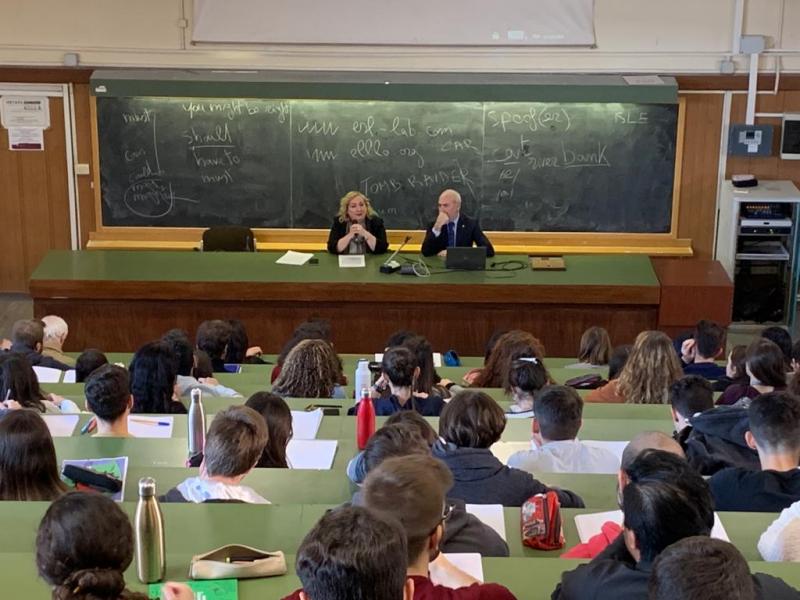
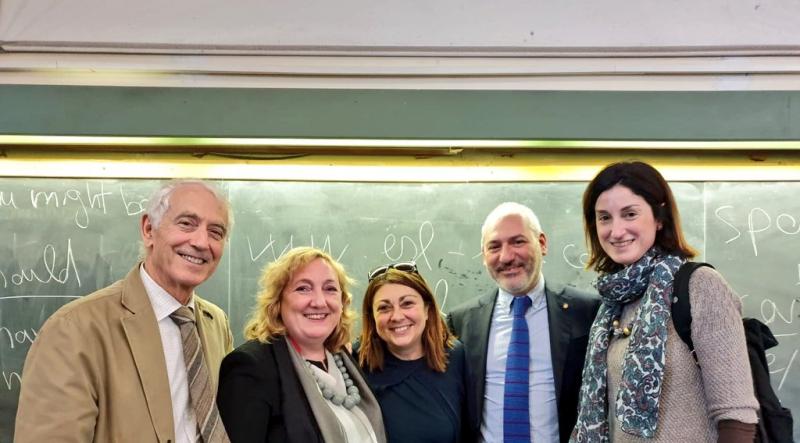
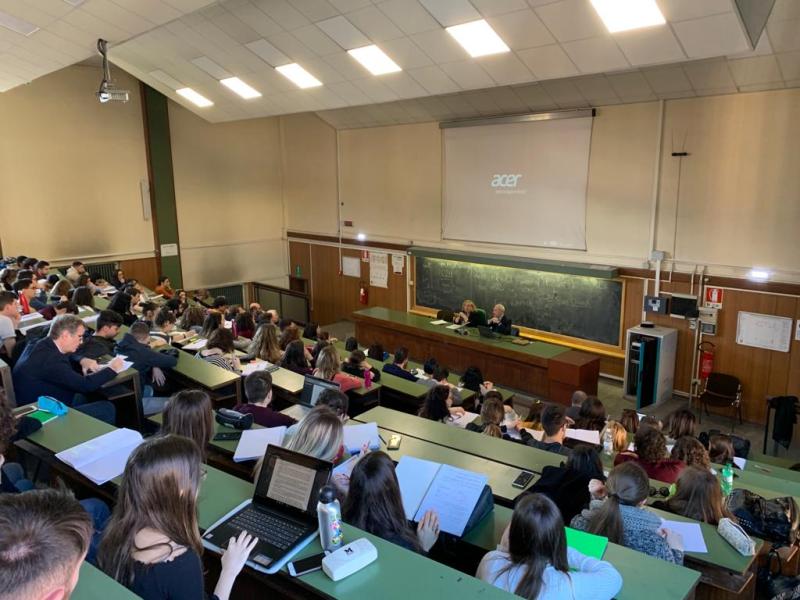
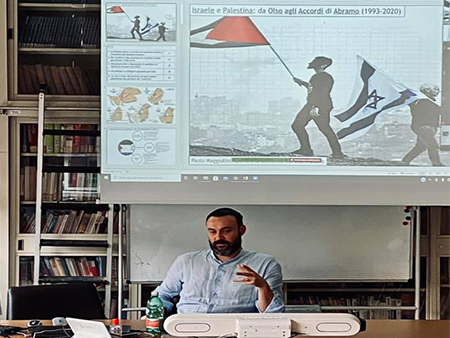
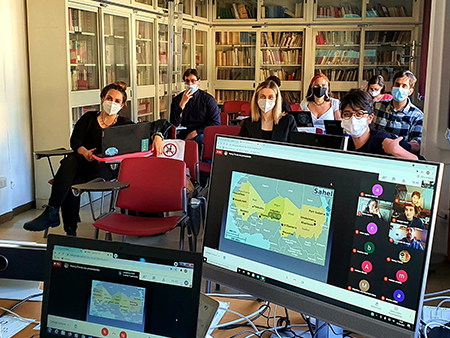
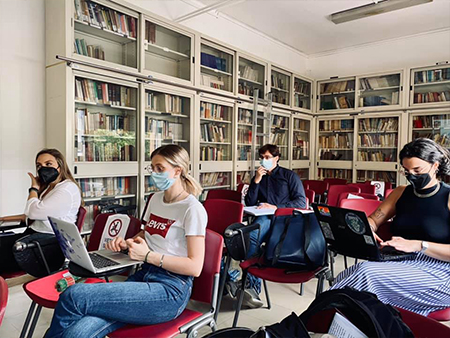
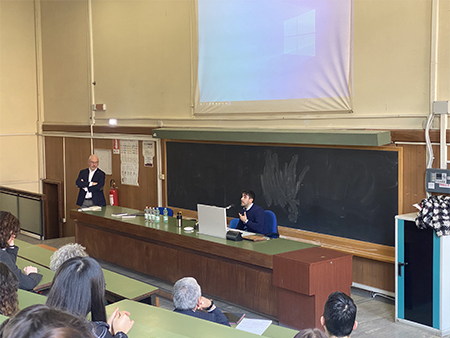
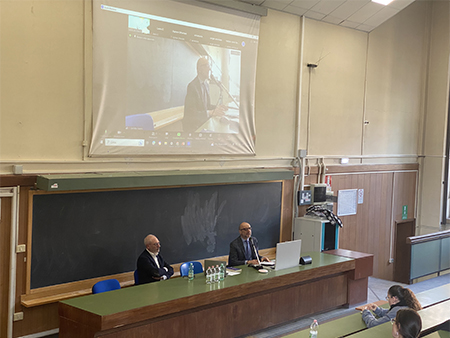
LOCATION
Department of Social and Economic Sciences (DiSSE)
Sapienza University of Rome
Address:
Piazzale Aldo Moro, 5 – Città Universitaria
Faculty of Political Science, Sociology, and Communication
Economics Area – 1st Floor
Lecture Hall:
Aula Biblio – Palazzina Tumminelli, Building CU007, 1st Floor
Sapienza University of Rome – Department of Social and Economic Sciences (DiSSE)
Master’s Programme in Migration and Development
Fostering global understanding, research, and professional training in the fields of migration, inclusion, and sustainable development.
Contatti
Director
- Letteria G. Fassari
- letteria.fassari@uniroma1.it
Didactic Secretariat and Information Office
- migration_development.disse@uniroma1.it
